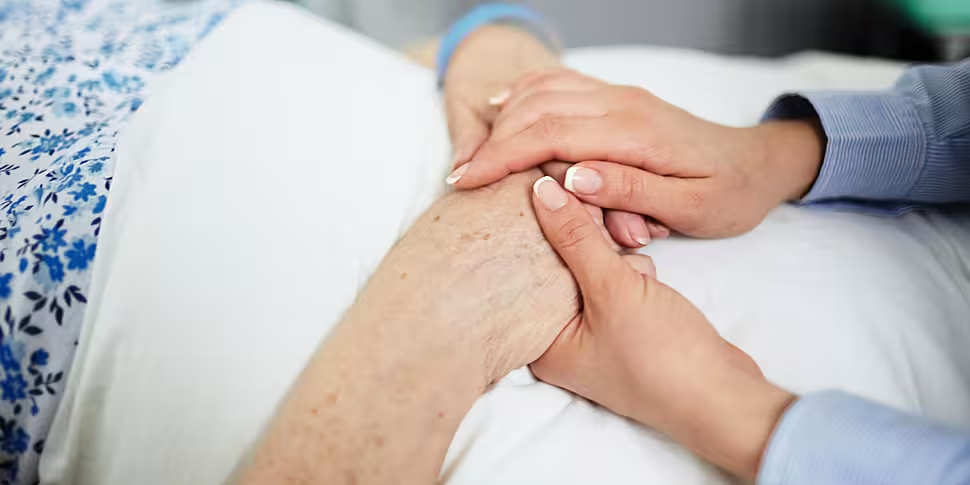A long-term cancer patient has said he would have opted for assisted dying after he was told he was terminal – but now a new treatment has lengthened his life.
The first public meeting of the Oireachtas Committee on Assisted Dying took place this morning, with TDs and Senators hearing from Department of Justice officials and the Irish Human Rights Equality Commission.
The Committee will consider expert evidence with a view to making recommendations on whether those suffering from a terminal illness should be assisted in dying.
Dying with Dignity Committee Chair Michael Healy-Rae said the issue is “complex” and “very serious” on Newstalk Breakfast.
Speaking to Lunchtime Live, multiple myeloma patient Noel, who has had the illness since 2013, said assisted dying should be “really closely regulated.”
Noel said when his weight had dropped to 50kg, after a series of treatments that were unsuccessful in clearing his cancer, his doctors suggested he enter palliative care.
“I eventually came to peace with it and I said ‘Okay, I am going to accept this,’” he said.
“I've got more time than I should have … I was given maybe five years in the beginning and I was on eight years."
Both sides of the argument
Noel said that if he had been offered assisted dying at that stage, he "would have gladly taken it.'
“Two days later, the team at University Hospital found a new treatment, which wasn’t available in Ireland but I got it on compassionate grounds and it worked," he said.
“I can see both sides of this argument, I would have taken that because nobody wants to be suffering …. but I’m two and a half years on this drug and it’s still working for me.”
‘Suffering’
Denise, whose mother died having had dementia and Parkinson’s, said something “definitely” needs to be done to assist those who are terminally ill in Ireland.
“That wasn't fair to watch her go down to five stone and be put on a morphine pump and drift away, it’s just cruel to watch somebody go like that,” she said.
“There are too many people out there suffering and nobody's making decisions for them or their decisions aren't being applied.
“You have to think of the person that's involved, they're the ones that are suffering that you're watching, dying slowly and in agony and that's not fair.”
‘Complex situation’
Denise said the conversation for families is not an easy one and leaves carers feeling “hopeless”.
“It's very hard for people to make those decisions, but it's the person who's there is who you’ve got to think of, not the ones who were looking on, not knowing what to do,” she said.
Denise’s husband, who has also been diagnosed with dementia, is now bedridden and unable to communicate due to his diagnosis.
“I don't want him to go, but looking at him yesterday, you come to think ‘wouldn't it be better if he did?’”, she said.
“If I could help him I would, but legally, I can't.”
‘I agreed to help her'
Michael Nugent, whose wife was diagnosed with terminal cancer in 2009, said she had decided to take the steps needed to “avoid unnecessary suffering” and he had agreed to help her.
“Like most people who take that decision, and even most people who make preparations, Anne died naturally,” he said.
“What most people aren't aware of is that it's largely about the quality of life that you get while you're still alive by knowing that you have the option of managing pain or taking the choice to die on your own terms at the end.
“It's crucial now that they actually take the decisions and make recommendations to change the law.
“The job of the Oireachtas is to examine how it's done in other countries, examine what the concerns are and come up with legislation that balances the rights of terminally or seriously ill people … and also respect the rights of rational, terminally ill or seriously ill people who wanted to die peacefully.”
You can listen back here:









